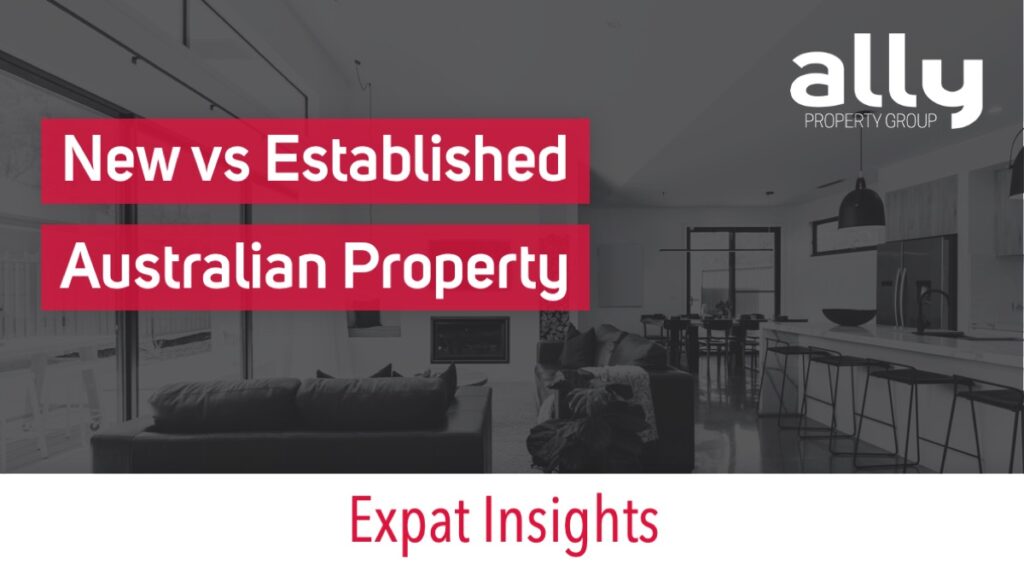Landlord Insurance for Australians - Protecting Your Investments
As a property owner, you're not just holding onto a piece of real estate; you're managing an investment that can provide substantial financial rewards. Whether you're renting out a studio in the heart of the city or a sprawling estate in the countryside, your rental property holds significant value—not just in monetary terms, but also in its potential to generate steady income. However, with great investment comes great responsibility, and one of the key responsibilities is protecting your asset against the unforeseen.
This is where landlord insurance comes into play, a safety net that ensures your investment remains lucrative, even when unexpected events occur.
What is Landlord Insurance?
Imagine waking up to a call in the middle of the night, informing you that a pipe has burst in your rental property, flooding the living room and causing extensive damage. Or consider the scenario where a tenant accidentally starts a fire, leaving a trail of destruction in its wake. These situations are stressful, costly, and unfortunately, part of the risks landlords face. But, with landlord insurance, you can ensure that you're protected.
Landlord insurance is specifically designed to offer property owners protection against the unique risks associated with renting out their property. It's a comprehensive umbrella that not only covers tenant damage to the physical structure of your property but also safeguards your financial interests in a myriad of other ways. From liability protection to loss of rental income, landlord insurance is the armour your investment needs in today's unpredictable world.
Unlike standard home insurance, which covers owner-occupied homes, landlord insurance caters to the needs of those renting out their properties. It recognises the additional risks landlords face, such as tenant-related damages, potential legal actions from tenants, and loss of income due to uninhabitable property conditions following an insured event.
When Should You Have Landlord Insurance?
You might be wondering, "Is landlord insurance really necessary for me?" The short answer is: If you're renting out a property, yes. Whether it's a single-family home, a duplex, or several apartment units, having landlord insurance is crucial from the moment you sign your first lease agreement. Here's why:
- Renting out a single property: Even if you're a first-time landlord with just one rental property, the financial and legal risks can be significant. Landlord insurance protects your investment and provides peace of mind.
- Owning multiple properties: The more properties you own and rent out, the greater your exposure to potential risks. Landlord insurance becomes even more critical to manage and mitigate these risks effectively.
- Short-term vs. long-term rentals: Whether you're into the short-term vacation rental market or renting out properties on a long-term basis, each comes with its own set of challenges and risks. Landlord insurance policies can be tailored to suit the specific needs of your rental strategy.
It's not just about protecting your property; it's about ensuring the continuity of your rental income and shielding yourself from possible liabilities. In some cases, your mortgage lender or local regulations may require you to have specific insurance coverage in place. But beyond legal requirements, it's a smart business move to secure landlord insurance.
Key Benefits of Landlord Insurance
Embarking on the landlord journey without landlord insurance is like sailing into a storm without a life jacket. Here's how landlord insurance keeps you afloat:
- Protection against tenant damage: This could be in the form of theft or damage from family or guests or the tenants to your property. It's not a replacement for building insurance but an important element.
- Loss of rental income: Should your property become uninhabitable due to an insured event, this coverage helps replace the lost rental income, ensuring your financial stability doesn't take a hit.
These benefits underscore the importance of landlord insurance in building a resilient rental business. It's not just about the immediate aftermath of an incident but ensuring the long-term viability and profitability of your investment.
How Much Does Landlord Insurance Cost?
The cost of landlord insurance is a common concern among property owners, but it's helpful to view it as an investment in your investment. Several factors influence the cost:
- Location of your property: Properties in areas prone to natural disasters or high crime rates may see higher premiums.
- Type of property: The size, age, and construction type of your property can affect your insurance cost.
- Level of coverage: More comprehensive policies with higher coverage limits will cost more, but they also offer greater protection.
While the cost of landlord insurance varies, it's crucial to balance affordability with the level of coverage you need. Opting for the cheapest policy may save you money in the short term, but may ultimately lead to higher out-of-pocket expenses when dealing with significant claims or damages. To get a sense of how much you should budget for landlord insurance, it's advisable to obtain quotes from multiple insurance providers. This will give you a comparative perspective on the market rates and help you find a policy that offers both comprehensive coverage and value for money. Remember, the right landlord insurance policy is one that covers your specific needs at a cost that aligns with your budget, ensuring your rental venture remains profitable and protected.
Insurance premiums are an investment in the security and longevity of your rental business. By carefully selecting a policy that matches your requirements, you can safeguard your assets against unexpected events that could otherwise jeopardize your financial well-being.
How to Choose the Right Landlord Insurance Policy
Choosing the right landlord insurance policy is akin to selecting a custom suit. It should fit your specific needs perfectly, offering coverage where you need it most while aligning with your budgetary constraints. Here's how to tailor your policy to your needs:
- Assess Your Risks: Begin by evaluating the unique risks associated with your property and rental situation. Do you rent to students? What would be the cost to repair damages? Understanding these risks will guide your insurance coverage priorities.
- Coverage Details Matter: Look beyond the premium costs. Examine the specifics of what each policy covers, including property damage, liability, loss of income, and any additional coverage options like emergency repairs or legal fee coverage.
- Compare Policies: Don't settle for the first quote you receive. Shop around and compare policies from multiple insurers to find the best coverage at the most competitive price. Use online comparison tools or consult with an insurance broker to broaden your options.
- Read Reviews and Ratings: Research the insurer's reputation for customer service and claims handling. Reviews from other landlords can offer invaluable insights into how an insurance company supports its clients when it matters most.
- Understand Policy Exclusions: Every insurance policy has exclusions. Be fully aware of what your policy does not cover. This knowledge will help you manage risks that fall outside your insurance coverage and consider additional insurance if necessary.
By meticulously choosing your landlord insurance policy, you ensure that your coverage aligns with your specific needs, providing peace of mind and financial protection.
Conclusion
Landlord insurance is an essential tool in the arsenal of any property owner. It provides a safety net that protects your investment from the unpredictable elements of renting out property. From property damage to tenant mishaps, having the right coverage ensures that your financial interests are safeguarded, allowing you to focus on what you do best: managing and growing your rental business.
In today's ever-changing real estate landscape, being a successful landlord requires more than just property management skills. It demands a proactive approach to risk management, with landlord insurance playing a pivotal role. By understanding the importance of this insurance, assessing your specific needs, and carefully selecting the right policy, you can navigate the complexities of property rental with confidence.
Remember, the goal of landlord insurance is not just to protect against potential losses but to ensure the continuity and profitability of your rental venture. It's about making a smart investment in your investment, ensuring that your property continues to generate income for years to come, regardless of the challenges you may face along the way.
As you venture further into the world of property rental, let landlord insurance be your steadfast companion, providing security and peace of mind in an unpredictable world. With the right coverage in place, you're not just insuring your property; you're securing your financial future.
Embark on your property investment journey with Ally Property Group, your trusted ally in Australia's real estate market. Our expert advisers are dedicated to crafting personalised investment strategies for Australian expats and residents alike, aiming to enhance your portfolio and maximise returns. Start building your wealth with Ally Property Group, where strategic insights, analysis and modelling leads to prosperous investments.
We’re more than just property advisers. As Australian expats ourselves, we've navigated the intricate world of property investment both at home and abroad. With a legacy rooted in financial services, we offer a holistic, transparent, and strategic approach, ensuring you're equipped with the knowledge and confidence to make informed decisions.
Book an obligation-free, complimentary consultation here today.
General Information Warning: The information contained herein is of a general nature only and does not constitute in any way, personal advice. You should not act on any recommendation without considering your personal needs, circumstances, and objectives. We recommend you obtain professional property investment advice specific to your circumstances.
Pay it forward! Share this article with your friends and network.



